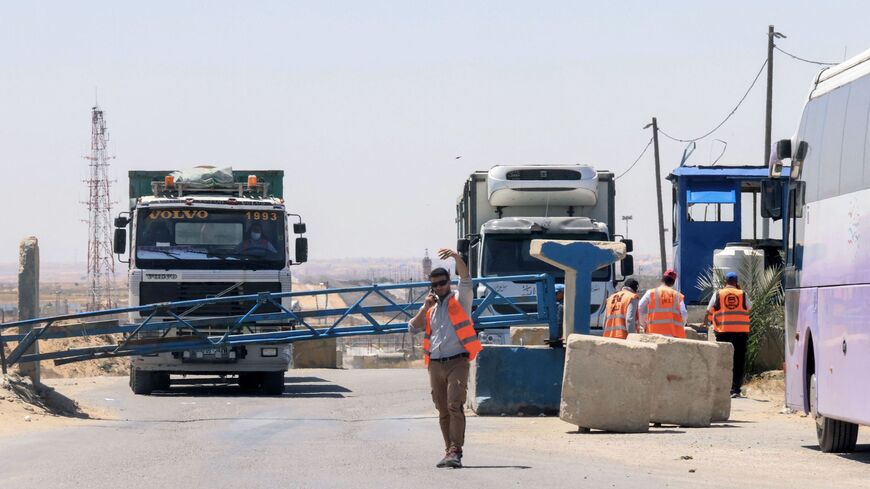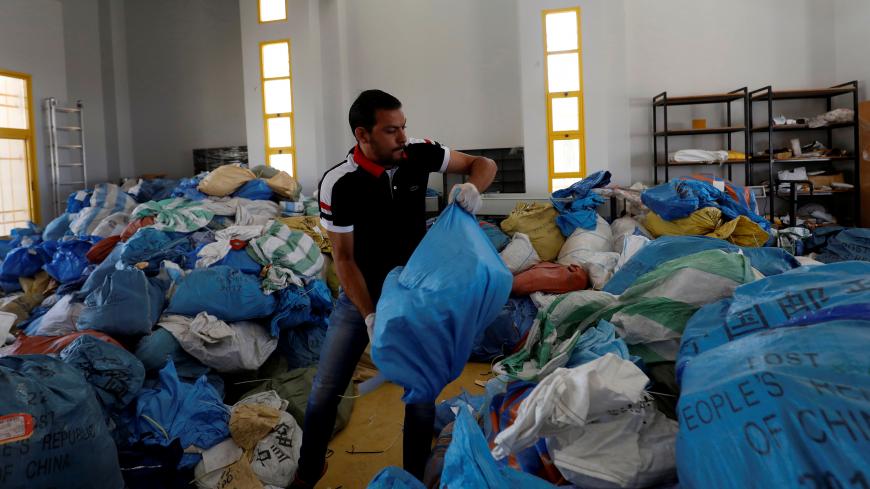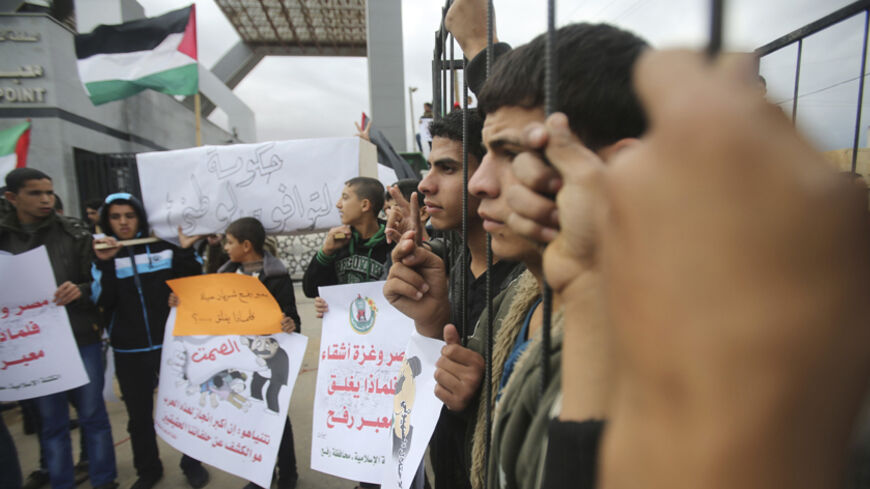Palestinians trapped in Gaza as Israel suspends postal services
Passport paperwork is piling up in post offices, as Israel has prevented mail from entering or leaving the Gaza Strip since May 11, thus preventing many students, patients and those with foreign residencies from traveling.

GAZA CITY, Gaza Strip — On May 13, Mohammad al-Aloul, a Gaza-based photojournalist working with Anadolu Agency, was injured while covering the Israeli bombing in the northern Gaza Strip during the latest escalation round. Aloul suffered moderate injuries after shrapnel from a missile hit the nerves in his foot. However, he cannot obtain his passport for treatment abroad because Israel has prevented mail from entering Gaza since May 11.
“We were in the car, returning from covering the Israeli bombing in the north, and an Israeli raid caught us by surprise. A missile exploded in the car. The shrapnel got in my feet, my hands, my lips. I couldn’t move my leg,” Aloul told Al-Monitor.
Even with the many surgeries he underwent in Gaza, Aloul needs to travel to complete his treatment abroad, whether in Egypt or Turkey.
“My passport application is suspended due to the closure of the mail service. This delays my treatment in more developed places outside Gaza,” Aloul said.
If he does not receive the proper treatment, Aloul cannot go back to work anytime soon. “I am afraid I could lose my job. The doctors told me to get used to office work, but how can a photojournalist work from an office?”
He added, “I cannot sleep at night. Some nights I feel my leg burning, other nights it feels ice cold, and both are unbearable pain.”
Since the first day of the war on Gaza on May 10, Israel has prevented paper mail from leaving the West Bank or entering Gaza. Passport transactions in Gaza are approved and issued by the Palestinian government in the West Bank.
Mahmoud Faraj, director of the Marrakech Express freight and cargo company in Gaza, told Al-Monitor, “Since May 11, thousands of passport and visa transactions have been piling up at our company due to the closure of the Erez crossing, and many people are prevented from traveling, be it through Egypt or Israel.”
He added, “The closure of the crossing affects the work of many institutions that are waiting for financial and banking transactions to complete their work in Gaza.”
Faraj called for urgent intervention so that Israel will open the crossing and allow mail to enter the besieged enclave in order to tend to many humanitarian cases, whether for medical treatment or financial and social transactions that are waiting for paperwork to arrive from the West Bank.
The recent war, which ended with a cease-fire on May 21, was exhausting for Dania Abu Ramadan, 20, and her family of five, much like all Gazans. She decided to leave Gaza for good but is still waiting to renew her passport.
“I could have died at any moment during that war. We want to live in safety and stability, so we hope that we can soon renew our passport and leave for Egypt,” Abu Ramadan told Al-Monitor.
Meanwhile, Rami Abdo, director of the Euro-Mediterranean Observatory for Human Rights in Gaza, told Al-Monitor, “The complete closure of the crossings is part of the policy of collective punishment against the population in the Gaza Strip and exacerbates the deteriorating humanitarian situation there.”
He added, “There are thousands of residents who cannot renew their passports or obtain travel visas, whether for medical treatment or family reunions, even through the Rafah border crossing with Egypt.”
Abdo explained that the Euro-Mediterranean Observatory for Human Rights submitted a complaint to the UN Universal Postal Union (UPU) regarding the suffocating Israeli restrictions.
“Israel is a member of the UPU, and it thus bears obligations to guarantee the freedom of transit of parcels, and in the event of noncompliance, other member states have the right to impose sanctions on it, including canceling the provision of postal services for it," he said.
Abdo noted, “The [observatory] is also constantly communicating with the UN Special Rapporteur on the situation of human rights in the Palestinian territories, and European MPs, asking them to put pressure on the governments of their countries to demand that Israel fulfill its obligations as an occupying power as per international law.”
Gisha, an Israeli human rights organization, and the Al-Mezan Palestinian human rights center based in Gaza have jointly estimated that more than 6,000 Palestinian requests for new/renewed passports, including those with visas for third countries, are being blocked, as well as official documents and regular mail due to the current Israeli restrictions.
Alaa al-Hayek, 28, a newlywed from Gaza, has been waiting for about a month for a power of attorney document that her husband sent by mail from Germany for her to register their marriage in Gaza.
Hayek met up with her then-fiance in Turkey in February, where they signed the marriage contract before he had to go back to work in Germany. After registering their marriage in Gaza, she can then try to reunite with her husband in Germany.
“My husband signed the power of attorney and sent it by mail on May 9. My fate depends on this document that has yet to arrive; without it, I will not be able to register the marriage, nor even submit an official request to reunite with my husband in Germany,” Hayek explained.
Ever since the war between the Palestinian factions in Gaza and Israel ended on May 21, Israel has continued to pressure the Gaza Strip on the humanitarian level by preventing the entry of mail and commercial materials through the only commercial crossing, which further complicates matters in the absence of any progress in the negotiations between the two parties on the reconstruction issue or a prisoner exchange deal.







